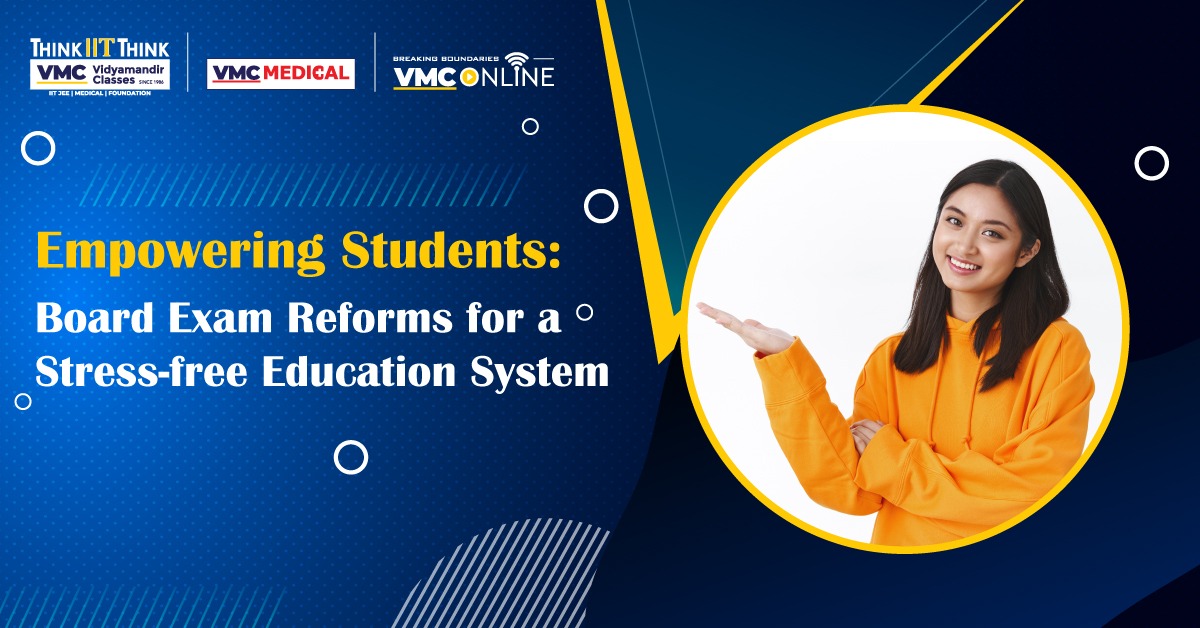Empowering Students: Board Exam Reforms for a Stress-free Education System
 Posted On
Posted On
256 total views, 1 views today
In a groundbreaking stride towards educational reform, the Ministry of Education has announced a progressive initiative aimed at alleviating the burdens faced by students during board examinations. Commencing from the academic year 2025-26, students appearing for both 10th and 12th board examinations will now have the opportunity to sit for their exams twice annually.
This pivotal decision was unveiled by Union Education Minister Dharmendra Pradhan, signifying a significant shift in the traditional examination structure. The initiative is in line with the New Curriculum Framework (NCF) introduced by the Ministry of Education in August 2023. The framework emphasizes the importance of flexibility and student-centric approaches in education, with a specific focus on mitigating the stress associated with board examinations.
Under the new system, board examinations will be conducted biannually, providing students with ample time and opportunities to excel academically. This move is not only designed to reduce the pressure endured by students but also to foster a more conducive learning environment that encourages holistic development.
One of the key features of this reform is the provision for students to retain their best score out of the two examinations they undertake. This empowers students to showcase their true potential without the fear of being disadvantaged by a single performance. By promoting a culture of continuous improvement and learning, this measure aims to instill confidence and resilience in students, preparing them for future challenges.
In addition to the board exam reforms, the Education Minister also launched the PM SHRI scheme during his visit to Chhattisgarh. This initiative underscores the government’s commitment to enhancing the quality of education across the nation. Under the PM SHRI scheme, 211 schools in Chhattisgarh will undergo extensive upgrades, with each school receiving an allocation of Rs 2 crore for infrastructural enhancements and educational enrichment.
The introduction of these reforms marks a significant milestone in the ongoing efforts to revitalize the education system in India. By prioritizing the well-being and academic growth of students, the government is laying the foundation for a more inclusive and dynamic learning ecosystem.
Furthermore, the decision to conduct board examinations twice a year reflects a progressive approach towards assessment and evaluation. It acknowledges the diverse learning styles and capabilities of students, thereby fostering a more equitable and meritocratic system.
The benefits of this reform extend beyond academic performance, encompassing holistic development and overall well-being. By providing students with multiple opportunities to demonstrate their knowledge and skills, the education system is fostering a culture of resilience, adaptability, and continuous improvement.
Moreover, the flexibility afforded by the option to choose the better score aligns with contemporary educational philosophies that prioritize individualized learning pathways and outcomes. It empowers students to take ownership of their academic journey, promoting a sense of agency and self-efficacy.
As we embark on this transformative journey in education, it is imperative to recognize the collaborative efforts of policymakers, educators, and stakeholders in shaping a progressive and student-centric system. By embracing innovation and embracing change, we can create a brighter future for generations to come.
Closing Thoughts
In conclusion, the introduction of biannual board examinations and the PM SHRI scheme signify a paradigm shift towards a more holistic and student-centered education system. These initiatives not only alleviate the pressures of traditional examinations but also pave the way for a more inclusive, resilient, and empowering learning environment. As we embrace these reforms, let us reaffirm our commitment to nurturing the potential of every student and building a future where education is a catalyst for positive change.




